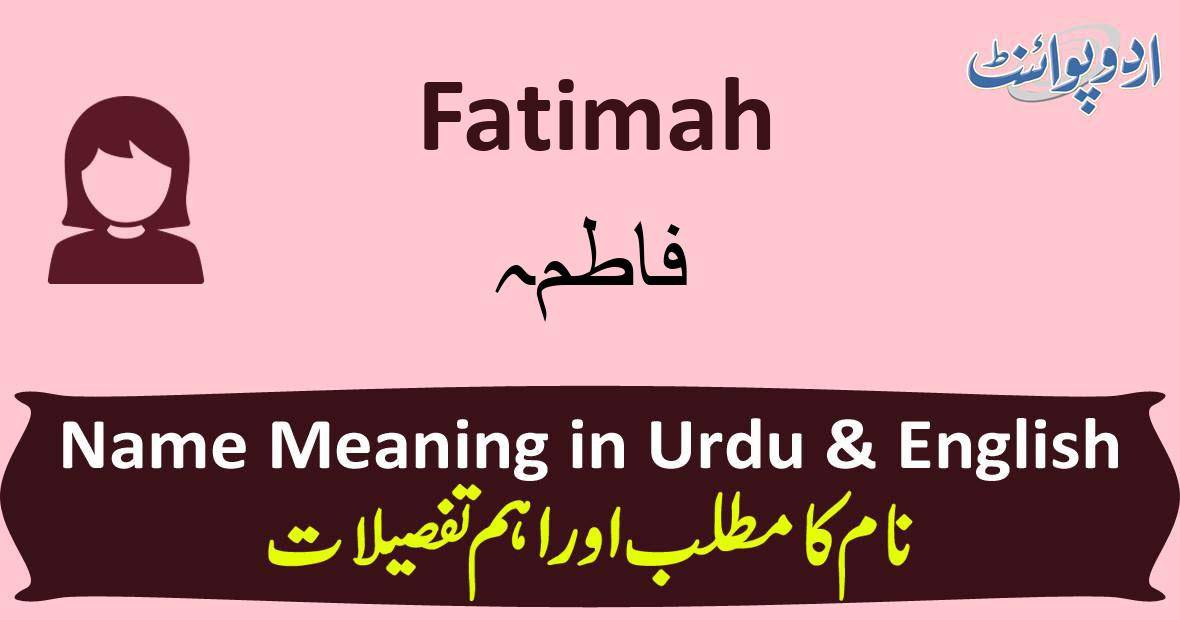Islamic Symbolism of Fatima's Tale:
 |
| Fatimah name meaning in urdu |
Fatima is an Arabic
name meaning "Immaculate Conception" which was given to the Virgin
Mary by Christians. Her story has been told and retold for centuries. Today,
Fatima is associated with a deeper meaning, which is a different story
altogether. She is also referred to as "Mary of Nazareth".
According to Islamic
history, Fatima
name meaning in urdu was the youngest daughter of Mohammed who was only
fourteen years old when she was married to a man named Mohammad. He had
divorced her mother before they were married. Her father turned down the
proposal of the man who wanted to marry Fatima because she was too young to be
married off.
The well-known
incident of the "tale of two daughters" and her will, the reason for
her rejecting the marriage proposal of the would-be groom, is a great example
of how she felt about Mohammed. Fatima's father even threatened to kill her if
she gave up her claim on Mohammed and Islam. After this bitter experience,
Mohammed used the events that happened to him to show the richness of women.
Fatima, her sister and
her mother were held in a cave where they were exposed to heat and hunger. They
escaped through a small crack in the cave wall, where they fled to their
uncle's house. Her uncle was of course ashamed to let them go and decided to
sell them to a certain man named Mahmud. The story goes that Mahmud saw these
three very poor and elderly women and asked them for a young girl so that he
could marry her off to him.
In exchange for
Fatima, Mahmud promised his wife that he would not marry the three old women.
This was because he was afraid that she would reveal his infidelity. When
Fatima learned that she had been sold to Mahmud, she became enraged and vowed
to return home and deliver him from his vow.
After several days
passed, Mahmud realized that Fatima was still missing and decided to call her
back to meet him. It was then that Fatima delivered a message telling Mahmud
that she would not return to his home because the promise that she had made to
him was still true.
As a result of this
incident, Fatima came into popularity among Muslims and is known as "the
Black Madonna". Her story can be interpreted in different ways such as:
"No man can marry my soul and take me captive", "no one can hold
me captive unless I say so"when I'm free, I won't return to that
man". According to Muslim legends, Fatima later converted to Islam and
lived a good life.
This story has been
read by many people especially in Pakistan and many people can understand
Fatima's plight and the suffering that she had gone through. As a result, there
are now Fatima themes in Urdu literature.

Leave a Comment